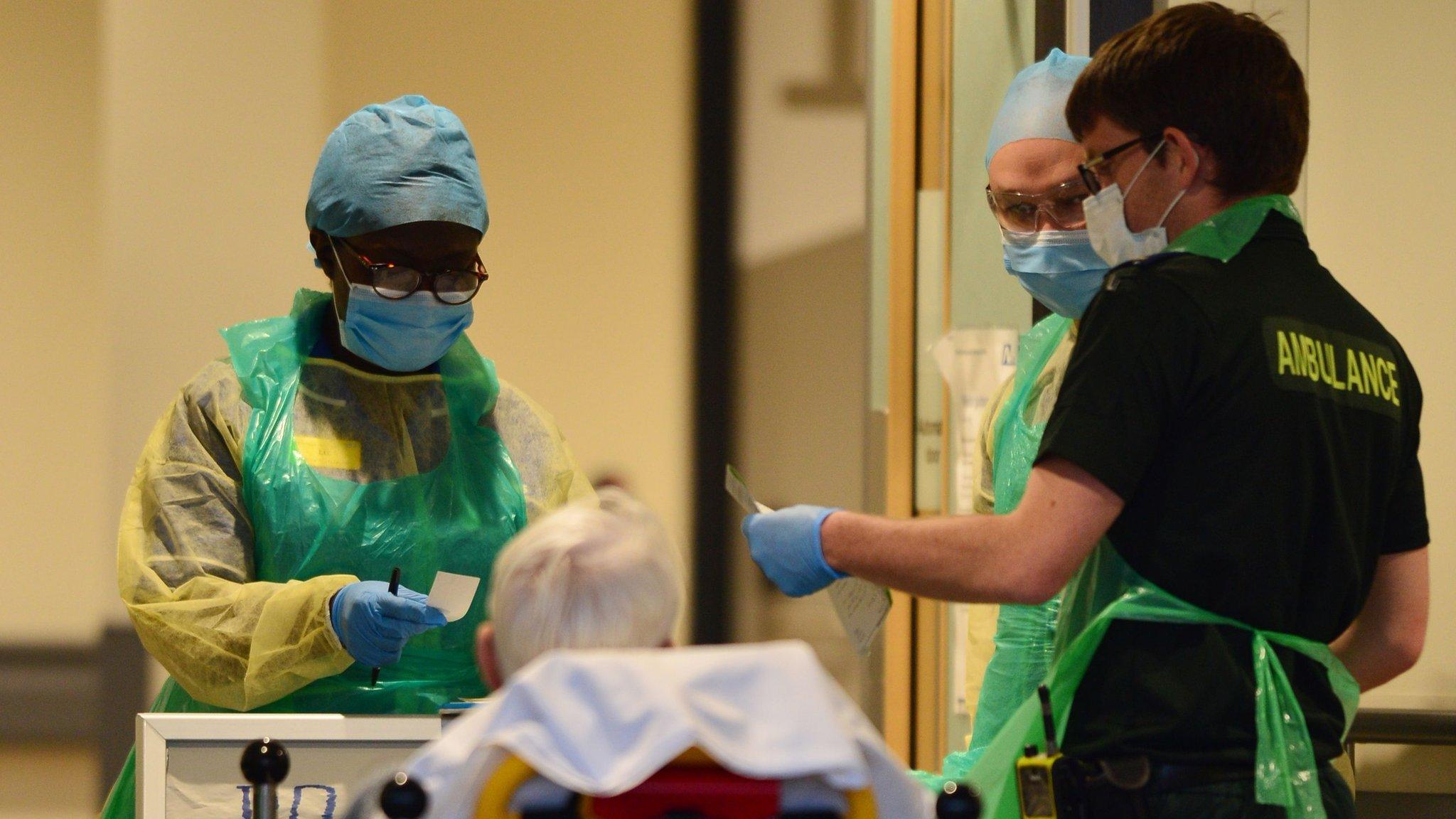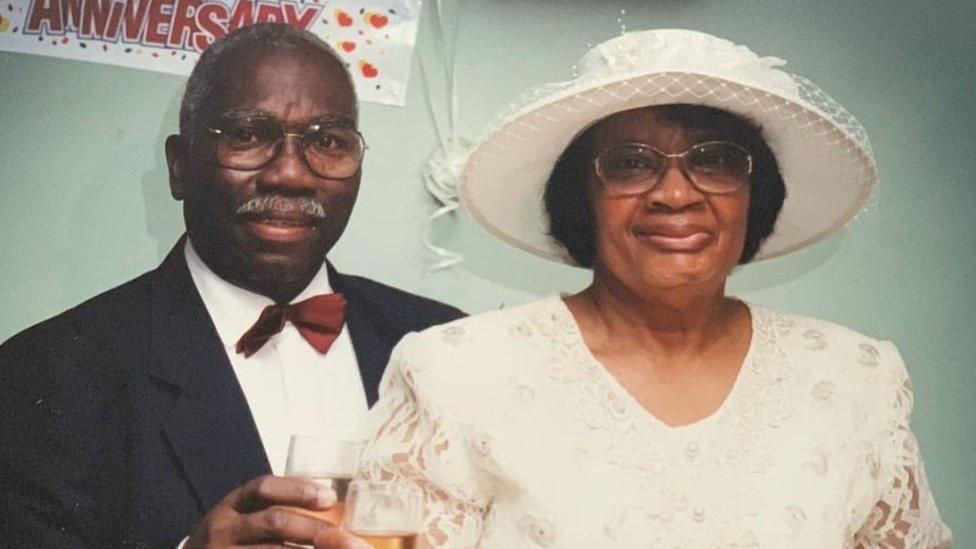Coronavirus: 'Critical' to get protective kit to front line - NHS medical director
- Published

It is "critical" personal protective equipment gets to NHS staff so they can follow the best possible guidance on its use, a senior official has said.
Public Health England changed its advice on Friday to allow the reuse of gowns if stocks run low.
NHS England's medical director Prof Stephen Powis said the previous guidance remained the "best" - but required adequate kit supply.
The communities secretary said 400,000 gowns were arriving on Sunday.
But Robert Jenrick did not dispute the suggestion from a reporter that this would only last NHS England around three days.
And he acknowledged that the "short supply" in areas such as masks and aprons was causing an "extremely anxious time for people on the front line".
It comes as the UK recorded another 888 coronavirus deaths, taking the total number of hospital deaths to 15,464.
Speaking at the daily coronavirus briefing at No 10, Prof Powis said the government was "working incredibly hard" to supply protective gear to front-line healthcare workers.
Mr Jenrick announces that 400,000 gowns are due to arrive from Turkey on Sunday
PHE guidance previously said healthcare staff treating Covid-19 patients should wear long-sleeved disposable fluid-repellent gowns.
But this was changed on Friday, with PHE outlining three options if gowns were not available as it said "some compromise" was needed "in times of extreme shortages".
Prof Powis said the former guidance remained "the best possible guidance for the state of the epidemic we've reached".
"In order to ensure that that guidance can be followed, it's absolutely critical above everything else that we have the supplies of PPE going out to the front line," he said, adding that the safety of NHS staff was an an issue of "personal" importance.
"I'm a doctor, I've worked for many years on the front line and I can absolutely assure you for me and my clinical colleagues, this is very personal," he said.
"These are my friends, colleagues, extended family."

Will 400,000 extra gowns be enough?
Analysis by BBC health reporter Philippa Roxby
An 84-tonne shipment of gowns from Turkey on Sunday will be welcomed, but it won't last long given there are around half a million front-line NHS staff.
That means they soon face the prospect of re-using gowns or wearing alternatives that are not designed to repel fluids, according to new guidance from Public Health England.
While ministers have always said the shortage is a result of huge global demand for protective equipment, doctors and nurses are not impressed.
Prof Steve Powis, a doctor who has worked on the front line for many years, appeared to take it personally.
And he suggested what his "clinical colleagues" needed was what they were promised two weeks ago before the guidance changed.

In the new guidance, which is to be adopted if shortages occur, three options are presented for when gowns are not available.
One option is for hospitals to reserve the gowns for surgical operations and procedures which are likely to transmit respiratory pathogens.
It also asks staff to reuse "(washable) surgical gowns or coveralls or similar suitable clothing (for example, long-sleeved laboratory coat, long-sleeved patient gown or industrial coverall) with a disposable plastic apron for AGPs (aerosol-generating procedures) and high-risk settings with forearm washing once gown or coverall is removed".
Earlier, the Royal College of Nursing said the guidance was developed without a full consultation and the British Medical Association (BMA) - which represents doctors - said any change must be driven by science, not availability.
'A real disappointment'
Dr Rob Harwood, consultants committee chairman at the BMA, said: "Too many healthcare workers have already died.
"More doctors and their colleagues cannot be expected to put their own lives on the line in a bid to save others, and this new advice means they could be doing just that. It's not a decision they should have to make."
Dr Harwood added: "It's a real disappointment to us that the government has been unable, even after a month, to address this progressively worsening shortage of PPE."

A SIMPLE GUIDE: How do I protect myself?
AVOIDING CONTACT: The rules on self-isolation and exercise
LOOK-UP TOOL: Check cases in your area

Unison, the UK's largest trade union, warned that staff in "high risk areas" might refuse to work if gowns run out.
Prof Neil Mortensen, from the Royal College of Surgeons of England, said surgeons should "not risk their health" if fluid repellent gowns or coveralls were not available.
He said he was "deeply disturbed" by the new guidance, which, he said, implied that "even in the operating theatre" surgeons and their teams may not require proper PPE.

Have you been affected by the issues raised in this story? Share your experiences by emailing haveyoursay@bbc.co.uk, external.
Please include a contact number if you are willing to speak to a BBC journalist. You can also contact us in the following ways:
WhatsApp: +44 7756 165803
Tweet: @BBC_HaveYourSay, external
Please read our terms & conditions and privacy policy
- Published18 April 2020

- Published18 April 2020
